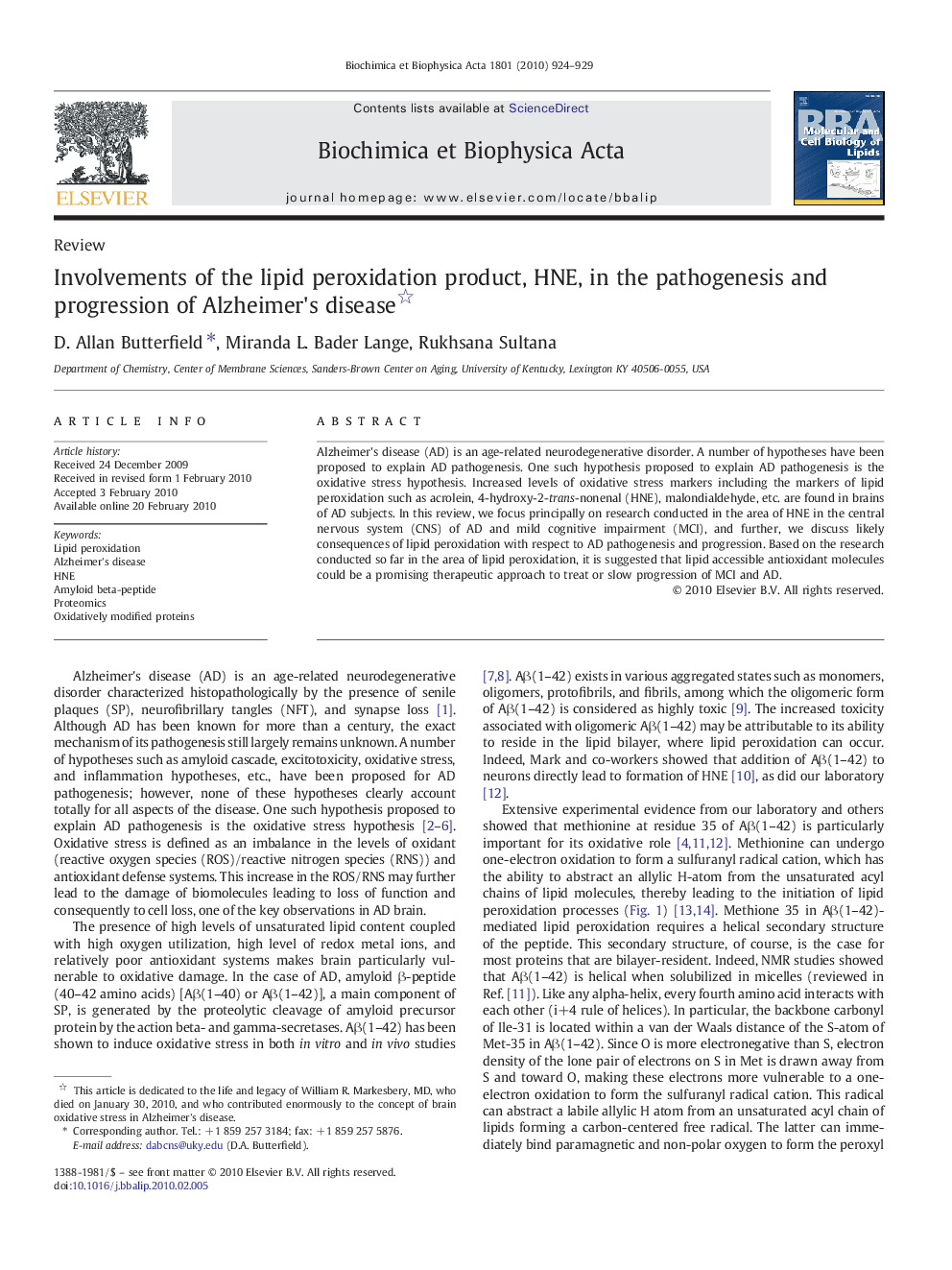| Article ID | Journal | Published Year | Pages | File Type |
|---|---|---|---|---|
| 1949673 | Biochimica et Biophysica Acta (BBA) - Molecular and Cell Biology of Lipids | 2010 | 6 Pages |
Alzheimer's disease (AD) is an age-related neurodegenerative disorder. A number of hypotheses have been proposed to explain AD pathogenesis. One such hypothesis proposed to explain AD pathogenesis is the oxidative stress hypothesis. Increased levels of oxidative stress markers including the markers of lipid peroxidation such as acrolein, 4-hydroxy-2-trans-nonenal (HNE), malondialdehyde, etc. are found in brains of AD subjects. In this review, we focus principally on research conducted in the area of HNE in the central nervous system (CNS) of AD and mild cognitive impairment (MCI), and further, we discuss likely consequences of lipid peroxidation with respect to AD pathogenesis and progression. Based on the research conducted so far in the area of lipid peroxidation, it is suggested that lipid accessible antioxidant molecules could be a promising therapeutic approach to treat or slow progression of MCI and AD.
